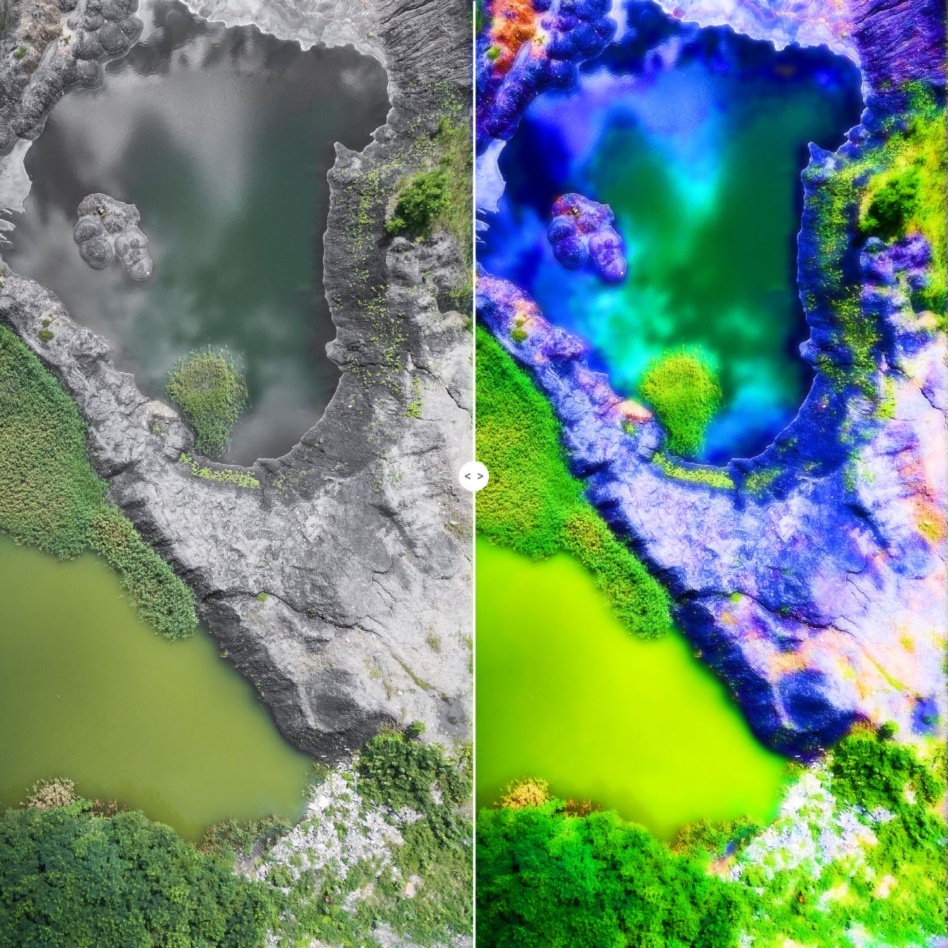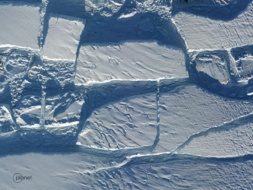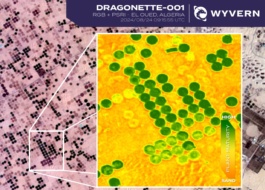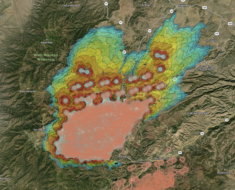Wyvern has raised $7M in a seed plus round led by Uncork Capital, bringing the hyperspectral startup’s total financing to ~$15M to date. Previous investors MaC Venture Capital and Y Combinator also participated in this round. MaC led Wyvern’s seed round in October 2021; Wyvern also recently graduated from YC’s W22 batch.
The Edmonton, Canada startup says that its first three satellites are fully funded and that capacity is dwindling on its first fleet that will go to orbit. The satellites are set to launch in early 2023.
An unfolding game-changer?
Wyvern is building high-res hyperspectral satellites with telescopes that will unfold from space upon reaching their orbital destination. The satellites use a new—and proprietary—type of deployable optic mechanism.
The unfolding design is something of a holy grail for Wyvern, helping the startup engineer a product that will tackle perennial form factor issues in hyperspectral imaging. The design will also help the startup deliver data to customers that it claims is an order of magnitude cheaper than satellites using traditional telescopes.
“With a healthy mix of private and public missions planned, there is no doubt [that] the hyperspectral wave is coming,” COO and cofounder Callie Lissinna told Payload. “Wyvern is not alone bringing this new category of space data to the market, but with our deployable optics technology we intend to offer the best in terms of resolution and cost.”
Wyvern’s first three space-bound satellites won’t unfold, however, and are meant to help the startup gain flight heritage and get satellite data into the hands of end users.
Wyvern’s sensors will image Earth and enable us to “see” in wavelengths that we weren’t able to observe before. The Wyvern team likens its technology to JWST, but for Earth. “We are scaling that game-changing technology down to CubeSat size, and will leverage it to uncover once-invisible insights about our planet instead of the distant universe,” Lissinna said.
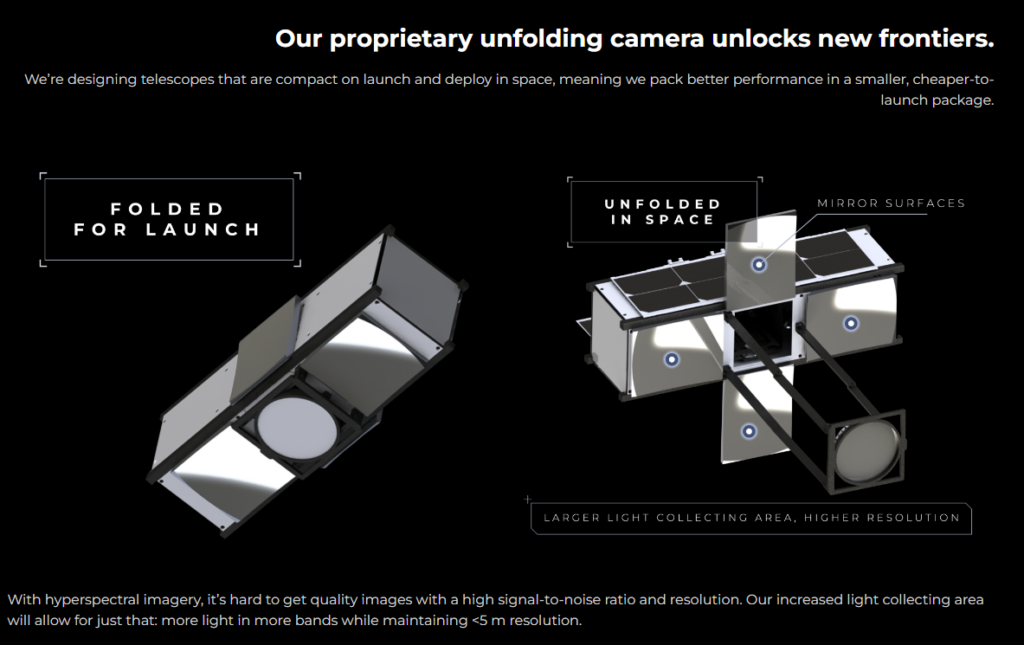
Looking ahead to the early adopters
Wyvern’s FirstLight program offers potential customers preferential terms to its early product, as the first units of its constellation and accompanying software come online over the next year. Those who enroll in FirstLight will receive dedicated onboarding, white-glove customer service, and preferential pricing for their first year.
The company sees its key target markets as environmental monitoring, agriculture, energy, defense, mining, forestry, and greenhouse gas monitoring. “The spectral range, resolution, revisit rate, and price point for these first satellites are ideal” for many ag applications in particular, Lissinna said, adding that the startup is also fielding interest from the energy, mining, and forestry sectors.
Like Pixxel, Wyvern’s pitch is simple—the company will collect and collate hyperspectral images in visible and non-visible wavelengths, in a way that hasn’t been technically or financially feasible before and at a price point that makes it realistic for commercial customers.
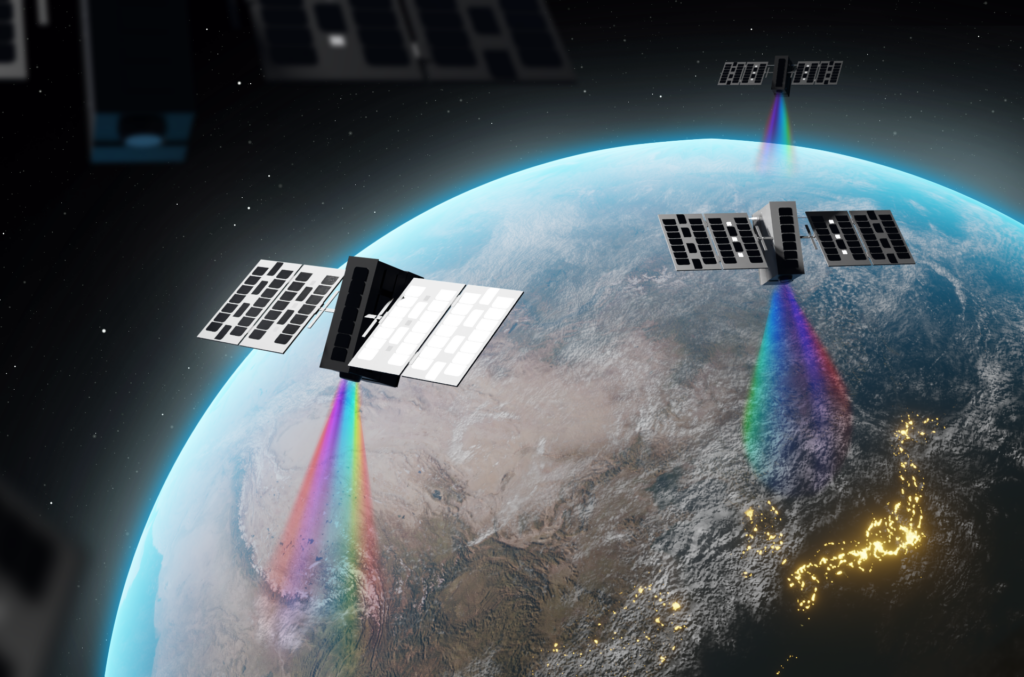
What’s next?
While the exact launch date is “still dynamic…we have secured slots on vehicles slated to launch in the first half of 2023,” Lissinna said.
The company will begin generating “satellite-driven revenue in 2023,” Lissinna said, “having already signed customer contracts pre-launch. “Once our satellites are up and operational, we know there are eager players and early adopters waiting to get their hands on this data from space for the first time.”
